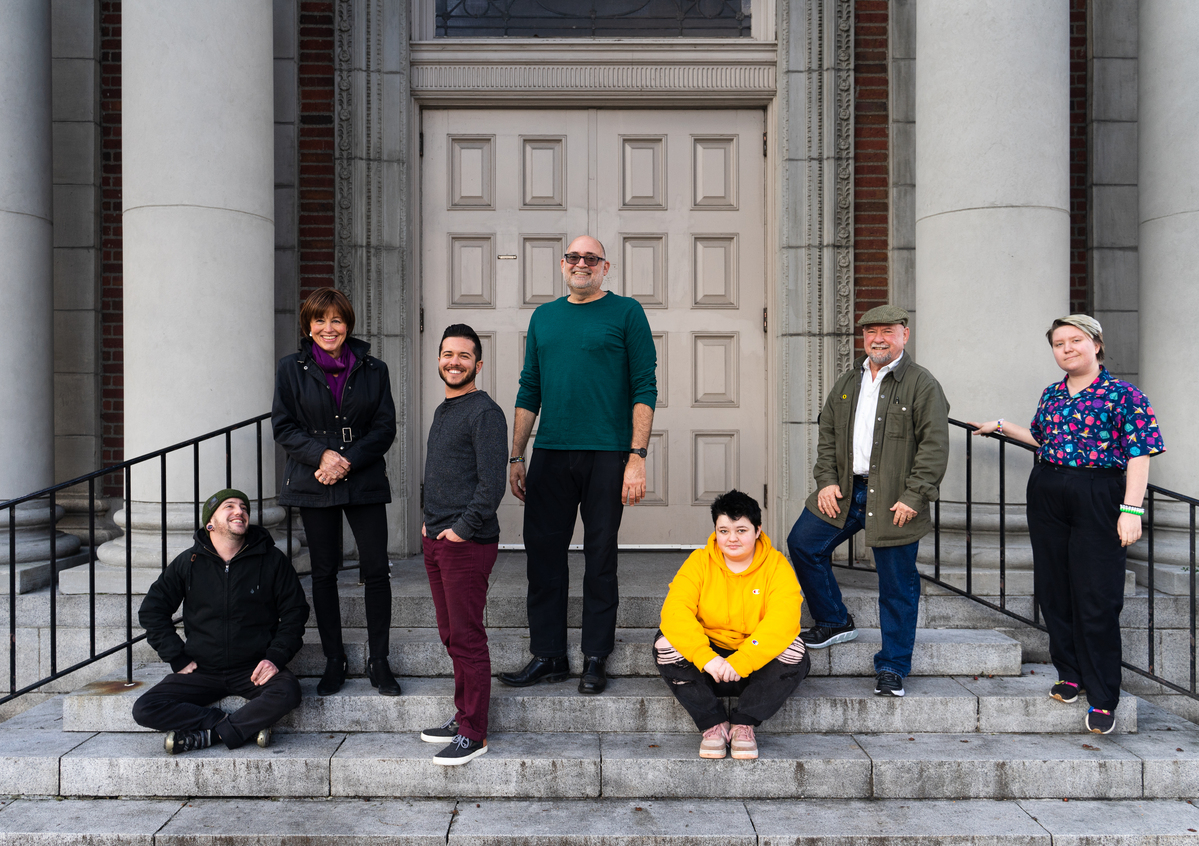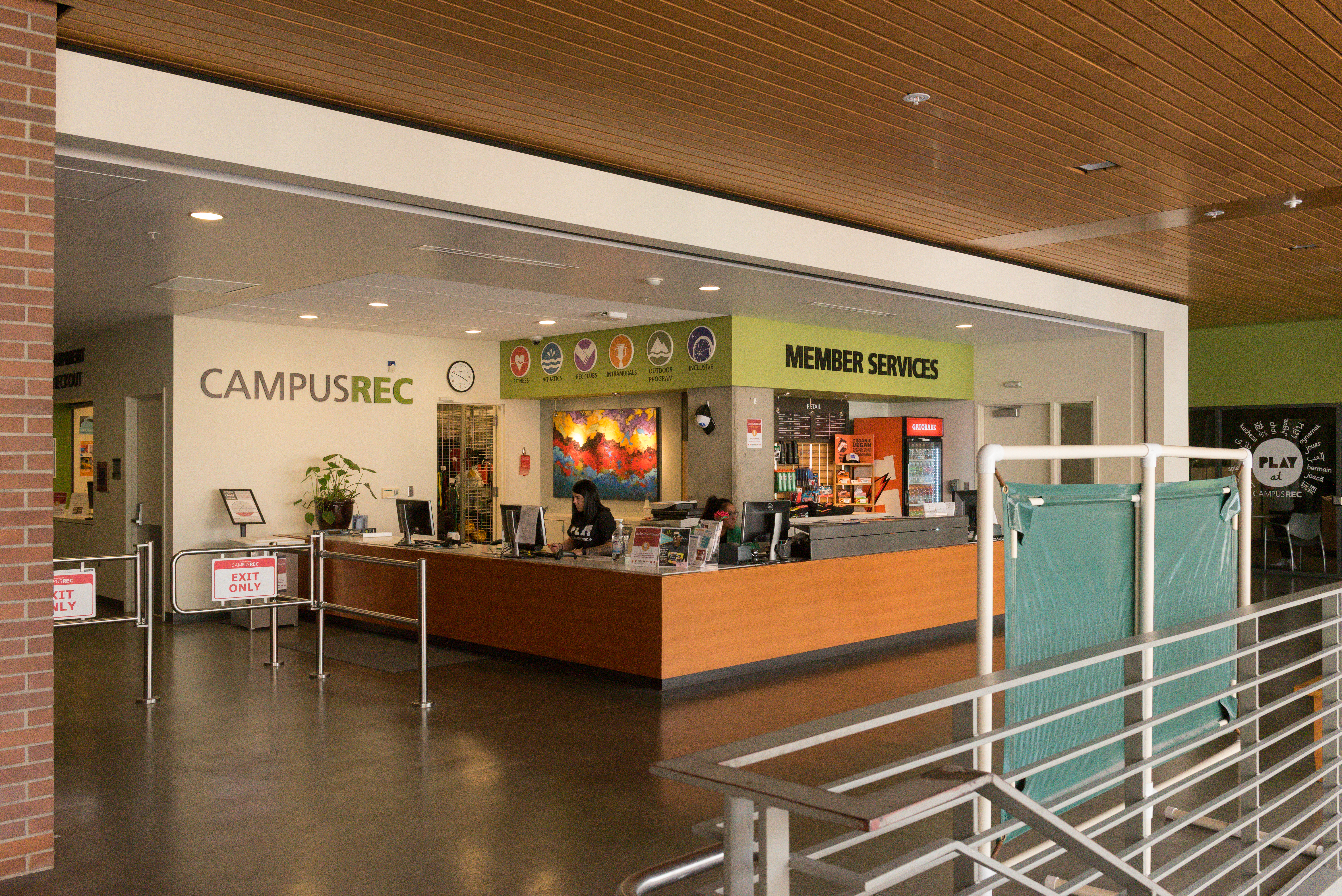International tuition carries Portland State’s most expensive price tag. But students weigh in—is it worth the cost?
According to its website, PSU is Oregon’s most affordable public research university, providing immigration advising, life advising, programming and support for more than 2,000 international students from nearly 100 different countries. Despite PSU’s affordability, some international students think their tuition fee is very costly, and they have different perspectives regarding the student resources and outreach given by the university, based on their personal experience.
“Tuition is a lot for international students; it is usually $7,000 to $10,000 per term,” said Mercedeh Farrokhi, an international student from Iran. “I think it is impossible to pay it out of pocket if you’re not on different scholarships, and I’ve been lucky that I’ve got four different scholarships to pay off my tuition.”
On what drove her to choose to study at PSU, Farrokhi said “I got to see the campus and the people are really sweet here.” Farrokhi is also a mentor for the Freshman Inquiry and the leader of the Iranian Association of PSU.
Matteo Fortini, an international student-athlete from Italy studying supply chain and logistics, has a full scholarship to play on the PSU tennis team.
“Fortunately, I got a full scholarship and if I didn’t have it, I would be studying in Italy,” Fortini said.
Fortini chose PSU because he wanted to experience something different out of his country and, for him, “it was a good opportunity to play [the] sport while studying.” However, for Fortini, being an international student athlete comes with a concern: “I can’t take more than one online class. Sometimes it’s hard because I travel a lot with my team, competing in other cities and states.”
Fortini’s teammate, Nikola Dmitrijevic, a transfer international student from Serbia, said: “I couldn’t play tennis at my previous school, so I decided to transfer.” Dmitrijevic does not get a full scholarship from playing tennis, and uses a number of other scholarships in order to cover tuition.
Christina Luther, the director of international student and scholar services international affairs office, said, “International students are eligible for scholarships around the university, but most of [the scholarships] are restricted to just United States citizens, so sometimes it’s hard for international students to get funding.”
In reference to international funding, Farrokhi shared her struggle of being an international student. She experienced a financial crisis last term because one of her scholarships ended, requiring her to petition to obtain another scholarship, which succeeded.
According to the PSU website, the U.S. immigration regulations require undergraduate international students to complete 12 credits per quarter which cost around $4,230 for undergraduates, with an additional $1,410 per term for health insurance. Students who live on campus pay an average of $16,869 for housing annually.
An Oregon resident taking 12 credits during the 2019–20 academic year pays just over $2,100 in tuition, $500 in student fees and an $890 insurance premium if the student did not provide proof of an equivalent health insurance policy.
Luther explained the additional charge for insurance is due to Oregon law, which requires students to have health insurance. However, if a student can prove they have an insurance policy equal to or greater than the one PSU provides, they may opt to waive PSU’s insurance, thus waiving the $1,410 charge.
“For me, I think international students are the most neglected segment at PSU,” said an anonymous PSU international student. “We have so many issues but no one is really fighting for us. Many people have left the school because they missed a payment and some of the students are fighting to stay here. We need better policy and equal rights and opportunities at PSU.”
“It’s heartbreaking, it’s really heartbreaking,” Luther said in response to the anonymous student’s statement. “I’ve been working in this office for almost 22 years and I’ve devoted my entire career to support international students, making sure that they have a smooth path at [PSU].”
“I know that it’s very very expensive for international students,” Luther said. “But a part of the student obligation who wants to apply for an F1 Visa, is to show that they have sufficient funding to study here, so the expense should really not come as a surprise.”
The International English Language Testing System (IELTS) exam is an English language proficiency test required by some U.S. colleges and universities for international applicants. While PSU does not require the IELTS, it does require “valid proof of English language proficiency.” Meeting the minimum IELTS criteria is accepted by PSU as valid proof of English proficiency.
For international students who did not meet the minimum criteria of the IELTS exam or other English language proficiency requirements, the Intensive English Learning Program (IELP) is here to help international students improve their English before they begin their academic career at PSU.
Students enrolled in IELP are still able to utilize campus resources such as the library, computer labs and the recreation center, as well as join student clubs and live in residence halls..
“The IELP has quite a lot of services specifically for international students who are learning English as a second language,” Luther said. “They have a conversation partner program, they’ve got tutors, mentors and a learning lab for students to practice their English.”
Farrokhi took the IELTS exam, but didn’t meet the minimum criteria and was encouraged to enroll in IELP.
“It wasn’t a huge change in my language, because it was only for one term,” Farrokhi explained. “[IELP] was a lot of money too, I paid around $6,000 for one term only for language course.”
Like Farrokhi, Fortini had to take IELP courses due to his language barrier, but for two terms.
“I had to take English courses before I started taking PSU classes,” Fortini said. “At first I thought it was boring, but if I look back, it was very helpful because my English improved a lot.”
“I think that I have enough points for IELTS…so I don’t have to take it and they didn’t encourage me,” Dmitrijevic said about his own experience with IELTS.
Despite its high cost, Fortini spoke of a benefit of IELP.
“Sometimes I receive emails from PSU and I see that they organize activities,” Fortini said. “So I think they’re pretty cool because many times international students come here and they don’t have friends, those activities gave them opportunities to meet new people.”
Farrokhi also thought the IELP is a useful outreach for students,
“It was helpful, not in the way it helped my English, but it helped me to learn about different resources on campus,” she said. “I work with the office of international students, therefore, I see a lot of people reaching out to me, making sure I have the right resources.”
“Our international office is the only international student specific resource,” Luther said. “But all the other student resources provided by PSU are available for them such as student health and counseling, student legal services, women resource center.”
Seonah Choi, an international student from South Korea, said there are a lot of interesting classes that the university offers, such as Queer studies, which she could not find in her previous school in Ansang, South Korea.
Joana Isimbi, an MBA international student from Rwanda, chose PSU specifically because the business program had the best curriculum and professors. She also said that the university has a lot of diverse students from different countries which allow her to get different perspectives and insights in her classes.
Nya Mbock, an international affairs director of the Association Students of Portland State University from Cameroon, said the student-led organization is a tool for students to get information regarding student services and provide contacts to which international students can reach out.
“Me and my international committee are working with different multicultural resource centers,” Mbock said. “We encourage international students to come to our meeting so they have a space to voice their concerns that they have.”
Mbock continued: “I have a few international students reaching out to me, there was a student [this winter term] who, her housing was in the air and she didn’t really know what to do going forward and I wanted to be a sounding board for her.”
After the student voiced their concerns, Mbock reached out to the International Department to find options for the student.
Harina Ainaga, an international student from Indonesia who is studying criminal justice, said “international students are shy to reach out to the department.”
Mbock and the international committee are working to improve the peer mentor program in the international office because it would create outreach opportunities for students who need help.
“Peer mentors would help a lot for international students so they can integrate into a group of people where the differences wouldn’t be so startling,” Mbock said about enabling international students to connect with one another.
Luther also mentioned the coronavirus in the interview and how it has impacted some international students, especially those who are from China.
“We have our second largest population of students from China and they’re experiencing a tremendous amount of hardships because their family who are supporting them, haven’t been able to work for the last four or six weeks, so they are unable to send money to them.”
“I’ve reached out to them,” Luther said. “I’ve sent them emails to let them know that we’re here and if they’re experiencing challenges they should reach out to me or the other advisors. I’ve also reached out to a number of offices for remision money so that we’re ready if there’s a student who is unable to pay. I’ve nominated four of our Chinese students scholarships for the spring team from a national organization of international education.”







As an international student from the UK who has experienced the costs associated with studying in this country I was pleased to see the Vanguard printing a cover story highlighting these issues. I was further pleased to see familiar names quoted, their voices given a platform. I was, however, concerned at some of the statements that Christina Luther, director of international student and scholar services, made for this piece, and that the Vanguard printed a falsehood.
Firstly to the falsehood: the piece claims that ‘if a student can prove they have an insurance policy equal to or greater than the one PSU provides, they may opt to waive PSU’s insurance, thus waiving the $1,410 charge.’ While there are circumstances in which this is true, they are very limited and thus this is a misleading claim. An international student may only opt out of PSU’s health insurance plan if (1) it is provided by the student’s home government or embassy through a U.S. based provider, (2) if it is provided through the student’s U.S. based employer (which, for many of us, is PSU), or (3) if the student holds a J-1 visa (typically held by those on exchange or shorter term programs a year or less in length) and the insurance was purchased before arrival in the U.S.
Make no mistake, many of us, myself included, simply do not have the option to waive out of PSU’s costly insurance plan. To claim that we do does us a disservice and silences us. It is unclear from the piece if this information was provided by Christina Luther or this was assumed by the Vanguard’s staff but this information is readily available on PSU’s website. I feel a correction should be issued. Furthermore, a quick glance at the details of this plan would tell you that this plan leaves us under-insured as in the event of an illness or injury that requires extensive treatment or an emergency visit to a non-preferred hospital I would likely face hefty medical bills. Indeed, I know of fellow international students who deliberately put off seeking medical attention until their next visit home to avoid such costs. This insurance plan leaves people such as myself in a double bind: we are not adequately covered by our insurance, and yet we are not free to seek out better coverage elsewhere.
I was further troubled by Christina Luther’s comments on international student expenses: ‘a part of the student obligation who wants to apply for an F1 Visa, is to show that they have sufficient funding to study here, so the expense should really not come as a surprise.’ I have twice been an international student in this country: on the first occasion I was an undergraduate exchange student on a J-1 visa at Virginia Commonwealth University, and am presently a graduate student on an F-1 visa at PSU. On both occasions I, like the vast majority of those wishing to come to this country to study, was obliged to attend an interview at the U.S. embassy in my country. On both occasions I arrived with supporting documents showing that I had sufficient savings and, in the most recent instance, that I had secured a funded graduate teaching assistant position. On neither occasion were these documents requested or looked at by the embassy official conducting my interview. Certainly, judging from my own experience, it would have not been a difficult thing to enter the country without the finances required to meet the costs of attendance.
Though I do understand that the U.S. visa application process is not one that native-born U.S. citizens will have had to undergo, I find it disturbing that the director of an office intended to serve international students is not aware of this. I find it more disturbing still that, as she is quoted in the piece, she appears to be attempting to brush this issue under the rug. Those of us that come to this country to study do so for many reasons: I, myself, was drawn here by funding opportunities that would allow me to study for my PhD. When we do so we bring a diverse range of experiences and cultures that enrich the life of this campus. We suffer through the stereotypes and patiently answer the questions we have been asked a thousand times or more (I shall scream if one more person I have just met asks what I think about Harry and Megan: for the record I do not care about Harry and Megan, one way or the other). We also, like domestic students, come from myriad circumstances and financial situations, which of course may change while we study here. We face restrictions on our ability to work that limit our ability to be self-sustaining financially and therefore limit our ability to raise money in the face of an unexpected expense or change in circumstance. As quoted, I find Luther’s words to be lacking in any understanding of the realities of being an international student at PSU. Families supporting international students may face hardship, scholarships may be lost, to simply say that that costs shouldn’t come as a ‘surprise’ is an insult.
It would be remiss of me to finish this piece without pointing out that, in general, I have found the office which Luther directs to be a welcoming place that puts on a wide range of well-attended and enjoyable events and that it communicates well with the constituents it serves. I do not wish for this piece to be read as merely a denouncement of that office, but rather as a response to some troubling aspects of the recent article. Furthermore, I am very happy at PSU and in Portland. I moved here a year and a half ago and I am thoroughly enjoying studying and living in this great city. However, that is not to say like I do not face difficulties borne of my status as a foreign student. I will happily face these difficulties in order to continue the wonderful experience that I am having here, but I do ask that when these difficulties are reported, they are reported accurately.